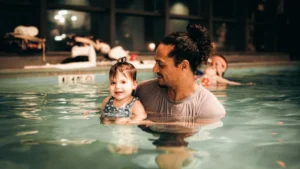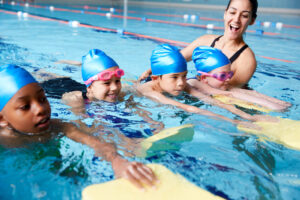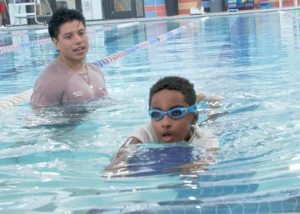How Swim Lessons Save Lives, Build Skills, and Address Sensory Challenges
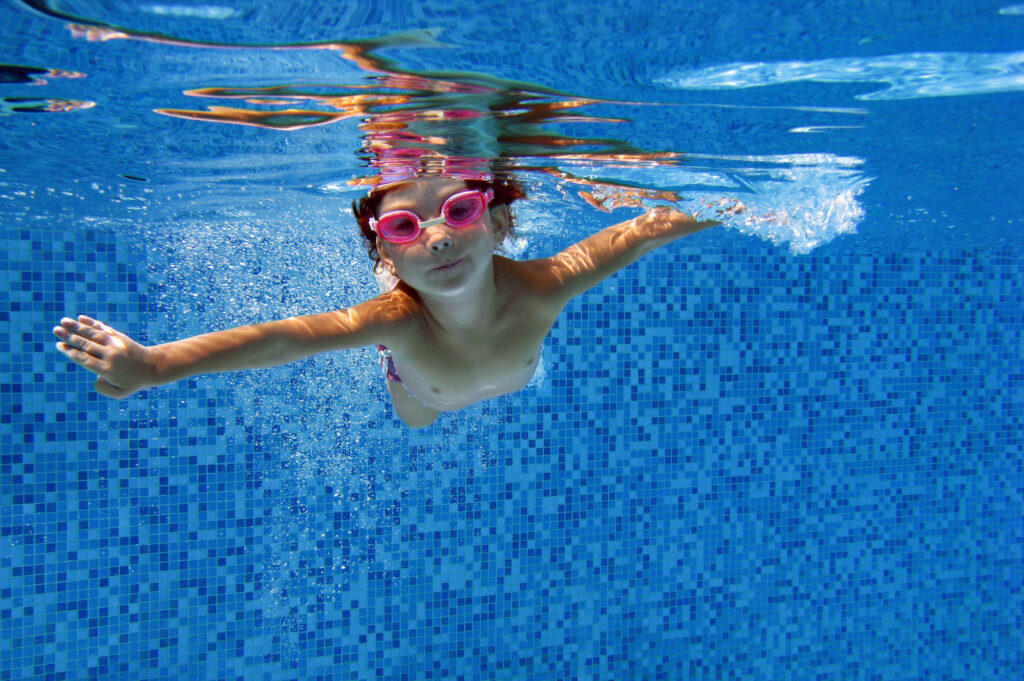
Something truly special happens when children with autism enter the water. The transformation can be incredible— and often in ways that extend far beyond developing swimming skills.
Finding activities that are engaging and support a child’ s individual needs can be challenging. Thankfully, adaptive swimming lessons can be a calming sensory experience that can improve physical skills, and promote social interaction.
Water Safety: A Critical Need for Children with Autism

Swimming lessons are highly recommended for autistic children due to the increased risk of drowning and the numerous benefits they offer. The statistics tell a story every parent should know:
- Children with autism are 160 times more likely to die from drowning than their neurotypical peers
- For individuals on the autism spectrum, drowning remains one of the leading causes of death
- Many children with autism are naturally drawn to water, increasing risk
These statistics might sound alarming, but they highlight why specialized adaptive swim lessons are so critical.
The good news? Research shows that with proper swim instruction, children with autism can develop strong water safety skills that will benefit them throughout their lives.
In a 2021 study, researchers found that even a 5-day adapted swim program significantly improved swimming skills in children with autism. The improvements happened regardless of age, co-occurring conditions, or practice frequency.
Teaching water safety through adaptive swim lessons isn’t just an extracurricular activity— it’s a potential lifesaver.
The Sensory Magic: How Water Supports Learning
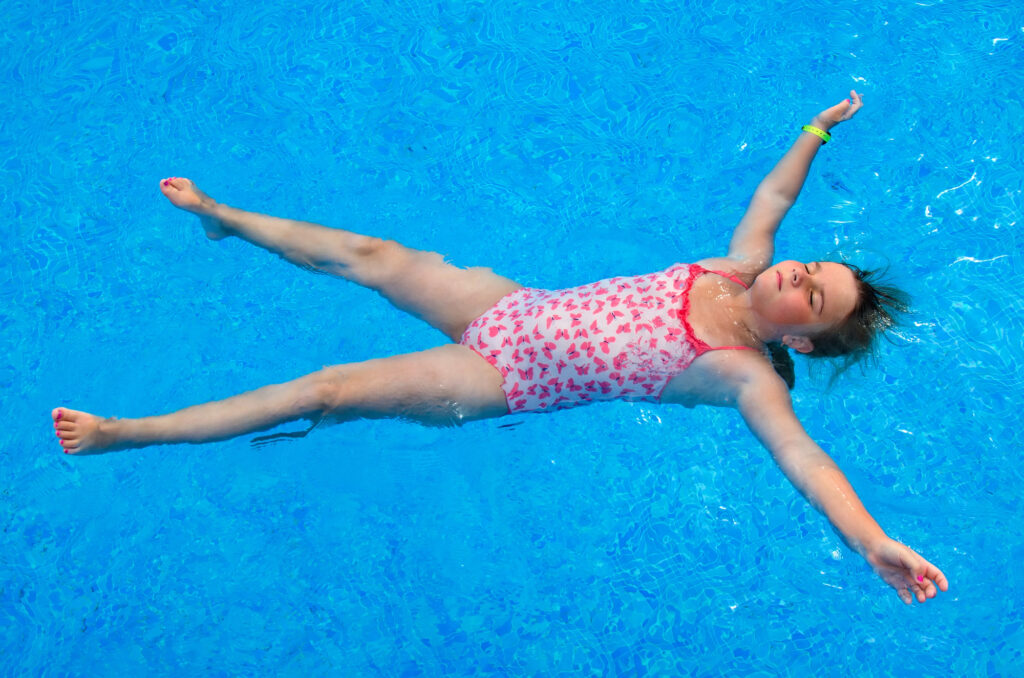
Have you ever noticed how differently your child might behave in water compared to other environments? There’s a reason for this “water magic” that makes swimming lessons for autistic children especially effective:
Deep Pressure Support
The gentle, consistent water pressure provides calming deep pressure input that many children on the autism spectrum crave.
This natural sensory regulation often helps with:
- Reduced anxiety and sensory overload
- Improved attention and focus
- Natural body awareness and positioning feedback
As one 2018 study shows, water effectively improved functional capabilities, emotional responses, and activity levels in children with autism.
Sensory-Friendly Environment
What can happen in many environments is that autistic children can become overwhelmed due to unpredictable noises, visual stimulation, and social demands.
However, the pool offers:
- Consistent, predictable sensory input
- Natural boundaries (the pool itself)
- Clear visual and physical structure
- Reduced gravity that supports movement exploration
Research published in 2022 showed that technical and game-based aquatic training improved gross motor skills and reduced stereotyped behaviors in children with autism spectrum disorder.
Reset Button Effect
Many parents find that swimming lessons act like a ‘reset button’ for their autistic child.
This makes perfect sense given what the research tells us about swimming’s effect on the nervous system:
- Water immersion can help regulate arousal levels
- The rhythmic nature of swimming provides organizing input
- The environment naturally limits overwhelming stimuli
Does Swimming Help Autism? Building Skills Beyond Swimming
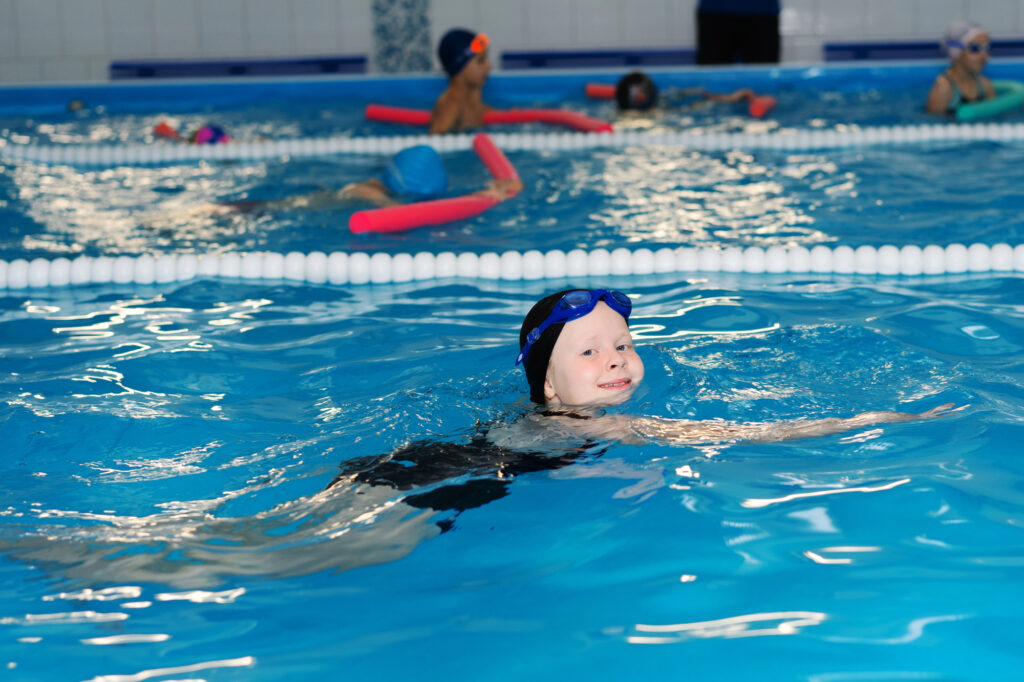
What makes swim lessons for children with autism truly remarkable is how the benefits extend beyond water safety. Parents may see improvements in areas they might not expect:
Physical Development
Many autistic children experience challenges with coordination, strength, and motor planning.
Swimming naturally addresses these:
Core strength development through water resistance
- Bilateral coordination through symmetric movements
- Motor planning through sequenced swimming skills
- Balance improvement in a supportive environment
A 2023 study confirms, “Aquatic exercise decreases motor deficits and improves executive function in children with autism spectrum disorder.”
Social and Communication Skills
While social skills might not be the first benefit you’d expect from swimming, research shows promising results in swim lessons:
- Increased eye contact during face-to-face instruction
- Natural opportunities for turn-taking
- Shared enjoyment builds social connection
- Clear cause-and-effect learning
A 2020 study found that aquatic programs improved social skills and reduced autistic behaviors while building swimming abilities.
Emotional Regulation
Many autistic children struggle with emotional regulation.
Swimming provides natural support for developing these skills:
- Physical activity naturally releases tension
- Rhythmic movement promotes self-regulation
- Accomplishment builds confidence and resilience
- A predictable environment reduces anxiety triggers
The WeAquatics Approach to Adaptive Swim Lessons for Children with Autism
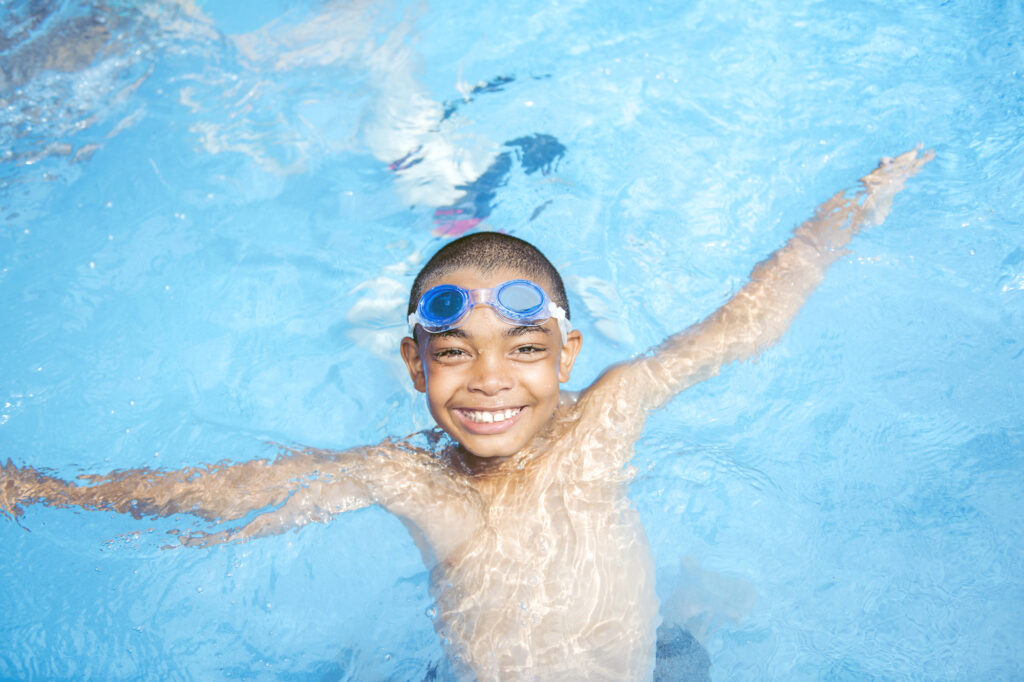
At WeAquatics, we’re proud to offer the Swim Angelfish® approach to adaptive swim lessons. This isn’t a standard swim curriculum applied to children with different needs— it’s a completely different approach built specifically for children on the autism spectrum and sensory processing differences.
What Makes Our Approach to Adaptive Swimming Lessons Different
Our Swim Angelfish® certified instructors understand how to adapt teaching methods for each child’s unique profile:
- Sensory-informed instruction that respects processing needs
- Visual supports and consistent routines
- Individualized pacing that builds confidence
- Celebration of all progress, no matter how small
Personalized Instruction
Every child with autism is unique, which is why our adaptive swim lessons always begin with understanding your child’s specific needs:
- Sensory preferences and challenges
- Communication style and strengths
- Motivations and interests
- Current comfort level with water
This teaching approach allows our certified Swim Angelfish® instructors to meet your child exactly where they are to create a positive foundation for swim success from their very first lesson.
Getting Started With Adaptive Swim Lessons
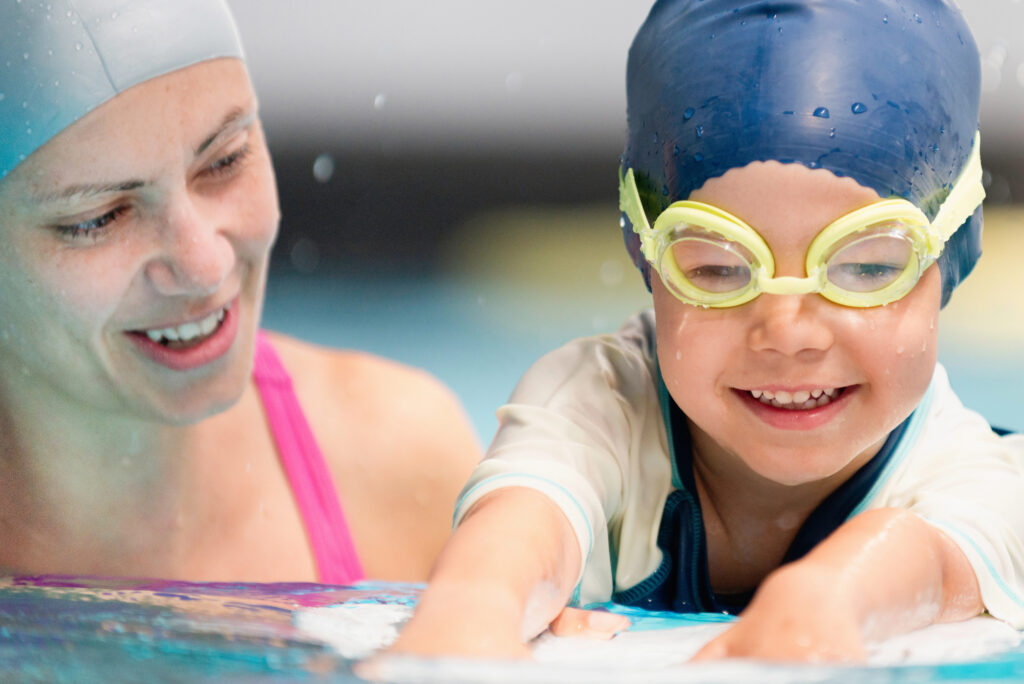
You may be at the point where you’re seriously considering swimming lessons for your autistic child— here’s what you need to know to get started:
- Connect with us for a consultation to address your child’s specific needs to see if we can help them
- Schedule an assessment with one of our Swim Angelfish® instructors so that they can develop a personalized approach
- Start where your child is comfortable, building confidence through skills
- Celebrate every amount of achievement, as progress looks different for every child
Are you ready to explore how swim lessons with our one-on-one Adaptive Swim program can benefit your child? Connect with us today— we’re happy to help support your family’s journey of swim confidence and skill development to build a lifelong love of swimming!

